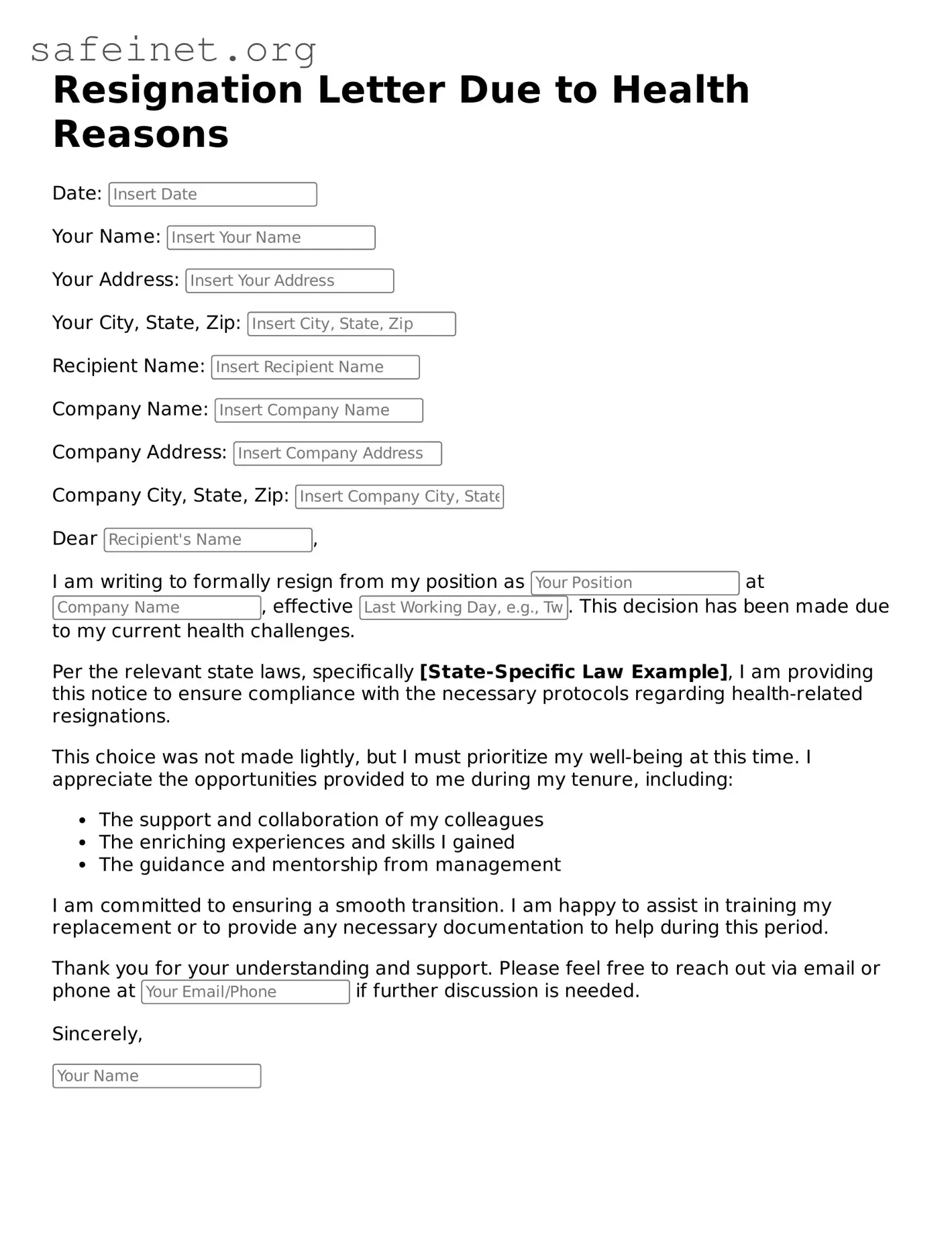What is a resignation letter due to health reasons?
A resignation letter due to health reasons is a formal document you submit to your employer when you need to leave your job because of health issues. It serves as official notification of your decision to resign and helps maintain professionalism despite challenging circumstances.
How should I begin my resignation letter?
Start with a clear statement that you are resigning from your position. Include your job title and the effective date of your resignation. A straightforward approach sets the right tone and clarifies your intent from the outset.
What content should I include in my resignation letter?
In addition to stating your resignation, briefly mention your health reasons if you feel comfortable doing so. Express gratitude for the opportunities you had during your time in the position. End with a positive note, wishing the company success in the future.
Is it necessary to give advance notice of my resignation?
Yes, giving advance notice is typically expected. A two-week notice is standard unless your employment contract specifies otherwise. However, if your health issues prevent you from doing so, including that in your letter can help explain the situation.
Can I request a reference in my resignation letter?
Yes, you can request a reference, but be mindful of your wording. Given your health situation, a simple statement requesting to stay in touch or expressing a desire for a positive reference can be effective without being too forward.
How should I handle my final days at work?
During your final days, try to complete any outstanding tasks and assist with the transition. Communicating with your team and supervisor will make the process smoother and leave a good impression, despite your circumstances.
What if I need to leave immediately for my health?
If immediate departure is necessary, state that in your resignation letter. Address your lack of notice candidly but professionally. It’s important to prioritize your health, and employers generally understand such situations.
Can I refuse to explain my health issues in my letter?
Absolutely. You are not required to provide details about your health condition. You can simply state you are resigning for health reasons without elaboration. Your privacy is important, and most employers will respect that.
